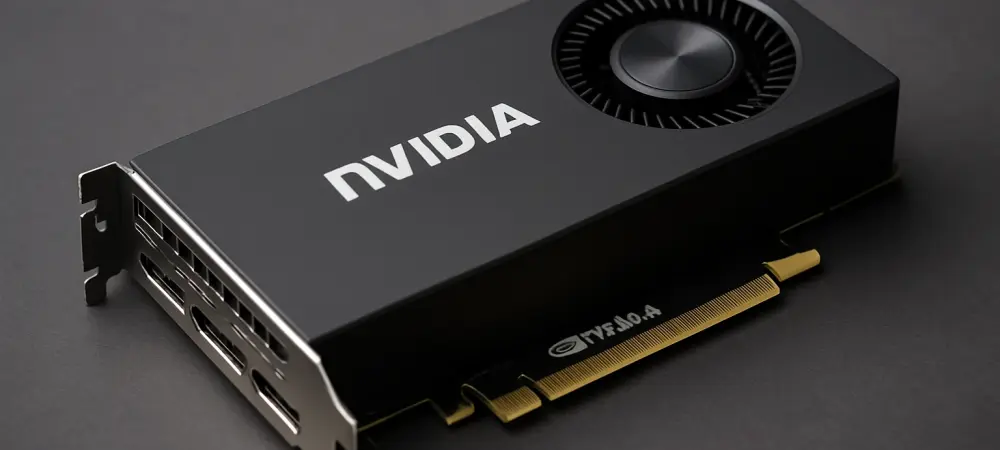Dominic Jainy is a seasoned expert in IT with a deep understanding of artificial intelligence, machine learning, and blockchain technologies, passionate about their application across various industries. In this interview, he shares insights into the current trends in GPU pricing, focusing on the NVIDIA GeForce RTX 50 series in Japan, and provides valuable guidance for consumers navigating these market shifts.
Can you explain the recent pricing trends of the NVIDIA GeForce RTX 50 series GPUs in Japan?
Certainly. The RTX 50 series GPUs, including the RTX 5070 Ti and RTX 5080, have experienced notable price reductions recently. These GPUs are slowly aligning with their official MSRPs due to improved availability, which has led to substantial price cuts. For instance, the RTX 5080 has seen a drop to around 169,980 Yen, which is its lowest since launch.
What specific price drop has the RTX 5080 experienced, and how does it compare to its original launch price?
Initially, the RTX 5080 launched at 198,800 Yen, but its market price escalated over 210,000 Yen in Japan. Now, it’s priced around 169,980 Yen, showcasing a significant reduction approximately 20% below peak pricing and about 15% off its official MSRP.
How do the prices of RTX 5080 in Japan compare to the prices in North America?
In North America, the RTX 5080 was launched with a price tag of $999. However, in Japan, the costs are typically higher due to factors such as customs and shipping. This difference in pricing reflects additional logistic costs, resulting in a notable disparity between Japanese and North American markets.
Why are GPU prices typically higher in Japan compared to North America?
Japanese markets often contend with increased pricing due to customs clearance, shipping, and sometimes local taxation. Additionally, importing consumer electronics can add logistical costs, making these products more expensive compared to their North American counterparts.
Could you provide details about the RTX 5080 models that are currently selling for under 200,000 Yen?
Certainly. Currently, a limited-time deal at TSUKUMO features the Gainward GeForce RTX 5080 Phoenix for about 169,980 Yen. Moreover, models like the ZOTAC RTX 5080 Amp Extreme Infinity and Galakuro RTX 5080 are available for less than 200,000 Yen at the same store, offering consumers varied options.
Have there been similar price changes for the RTX 5070 Ti? If so, what are they?
Yes, the RTX 5070 Ti has also seen price adjustments. The Palit GeForce RTX 5070 Ti Gaming Pro-S edition, for example, briefly listed below its MSRP, dropped its price to 139,980 Yen on Amazon, roughly 6% beneath its official price.
What is the MSRP for the RTX 5070 Ti, and how does it currently compare to market prices in Japan?
The RTX 5070 Ti has an MSRP of 148,800 Yen, which contrasts with its often higher market price of over $1000 in Japan. However, recent market adjustments have seen some editions fall below this MSRP, reflecting a positive trend for consumers.
Are there other RTX 5070 Ti editions available below the MSRP, and where can they be purchased?
Indeed, besides the Palit edition, other RTX 5070 Ti models are starting to sell below the MSRP at stores like TSUKUMO. These retailers offer financial relief for consumers wanting to purchase at more favorable prices.
What role does availability play in the price reductions of these GPUs?
Availability greatly impacts pricing; as these GPUs become more accessible, less pressure is exerted on prices, inducing natural reductions. Better stock levels mean less scarcity, creating an environment where price drops reflect increased supply.
Have budget GPUs like the RTX 5060 also seen their prices drop to the announced MSRPs?
Yes, budget GPUs like the RTX 5060 are now available at stores such as Amazon and Newegg for their advertised prices. This is due in part to retailers adjusting to meet consumer expectations, reflecting the trend of price stabilization within the lineup.
What advice would you give to consumers considering purchasing the RTX 5070 or waiting for further price drops?
Given current trends, it might be prudent to exercise patience. Price reductions are ongoing, and with the RTX 5070 nearing $600, waiting could yield greater savings. The potential for further adjustments implies advantages for those who can delay their purchase just a bit longer.

